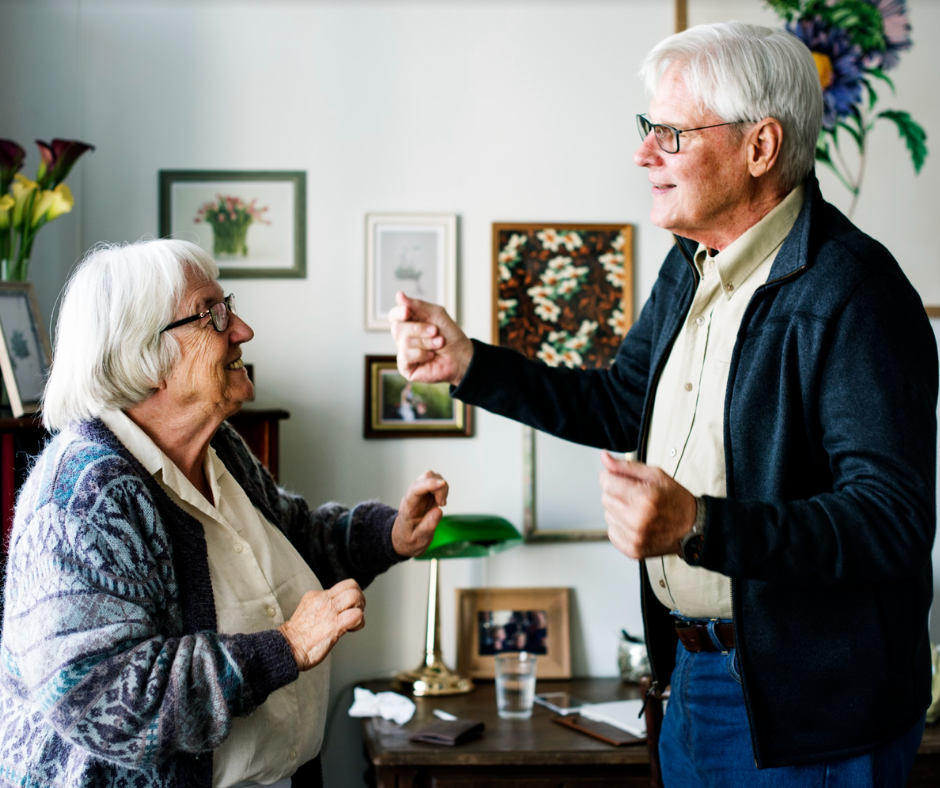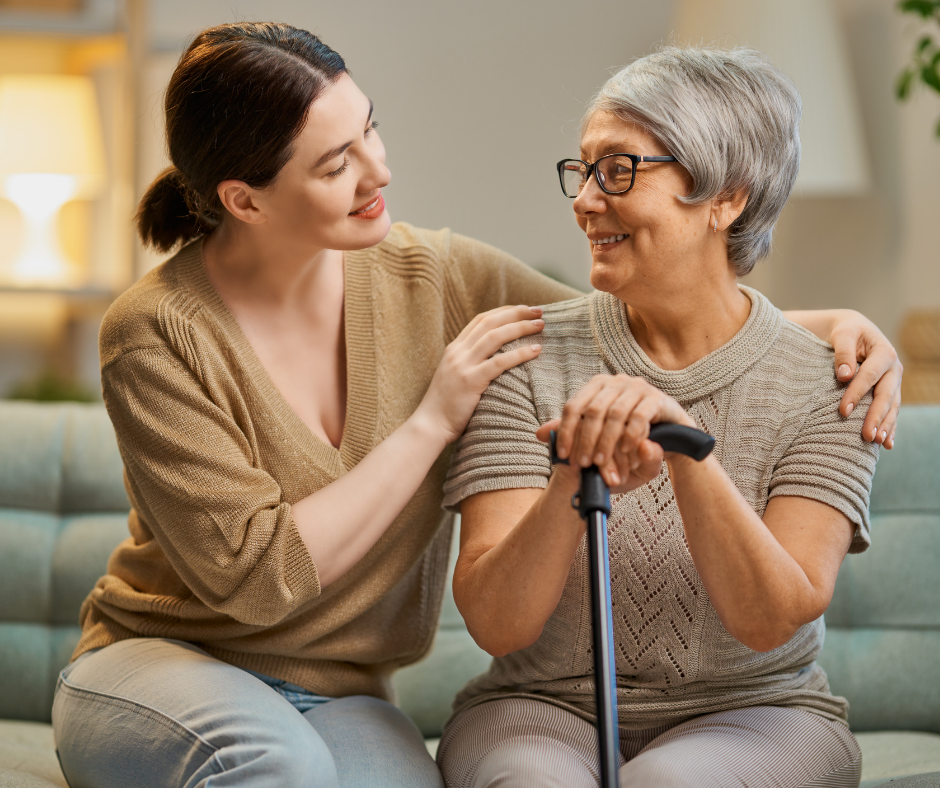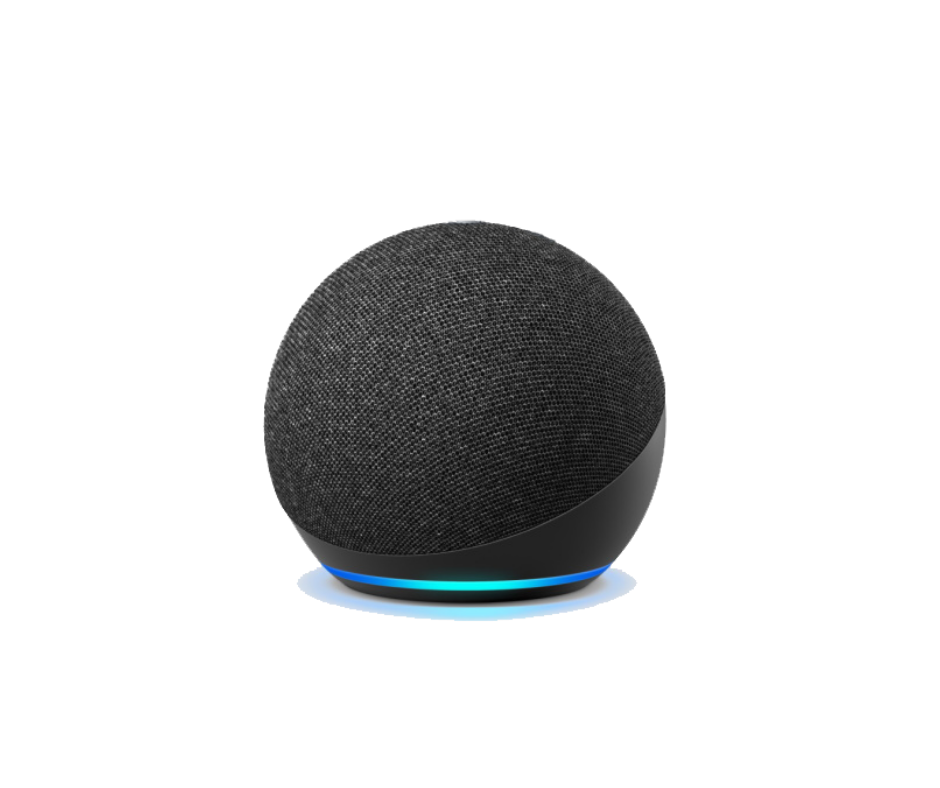Why Do the Elderly Struggle With Technology?
The Real Reasons Why the Elderly Struggle With Technology “Seniors will never understand how to use technology.” “They are too old – they...

As an occupational therapist, I keep as many “tools” in my toolbox as possible for my treatments. Working with older adults is challenging in many ways. But, I have always found music for seniors, especially my senior patients, to be a tool that can easily help me build rapport and get them more comfortable during our sessions. Other times music is the medium that I use for patients with brain injuries. I am always trying to incorporate my patients’ interests into the session to motivate them. Some interests are not always easy to incorporate (shout out to my patient who always asks me if I can take him fishing). Yet, music is a guaranteed interest that we can bond over. My patients feel special when they show me music I have never heard before and tell them I love it. I also love their reaction when I tell them, “I can play any song you want.”
I have many fond memories of sharing music with my patients during our sessions. One time I was treating a couple, and the wife had recently returned home from the hospital. They both shared a love for music. So, as an encouraging activity to get her up and be standing after being on bed rest for so long, I told them we would be dancing at the end of the session. I held her from her waist, and the husband danced with her arms. It brought them so much joy to share a special moment together after a few weeks apart. I had tears in my eyes as they danced to “You’re my everything” by Joni James.
Another special activity is asking patients to share their wedding song with me. It makes them happy to hear their special song and brings back great memories, especially if they are now a Widow or Widower. Some of my favorites are “I can’t stop loving you” by Ray Charles, “Save the Last Dance for Me” by The Drifters, “You Belong to Me” by Patsy Cline, and “Love Letters in the Sand” by Pat Boone.
Playing music is not just an enjoyable tool in my toolbox. There is so much research about music and music therapy’s physical, cognitive, emotional, and social benefits. Music has the power to positively stimulate the entire brain, which can be very hard to do for those with advanced cognitive decline. The American Music Therapy Associate perfectly summarizes the benefits of music therapy for those experiencing dementia or memory impairment:
“Because musical perception is processed throughout the entire brain, music activates all areas of brain tissue during both receptive and expressive musical behavior. Musical memory, therefore, is stored throughout the brain, which means that it is accessible even in the late stages of memory disorders when only some brain tissue is still capable of functioning normally. Additionally, music stimulates the use of synaptic connections between neurons in the many specialized areas of the brain, which may otherwise remain dormant and lose function due to the characteristic inactivity of dementia and other memory disorders.”
Music is a medium for therapy across all disciplines. We’ve all heard stories of surgeons playing music during surgeries for pain, musicians playing their instruments during brain surgeries, and playing Swan Lake music for a former ballerina with Alzheimer’s.
One of my favorite ways to incorporate the power of music is when treating patients with aphasia. I have had patients who cannot speak after a stroke, but during my evaluation, I find that they can sing happy birthday! This is because singing and speaking involve different neural pathways in the brain. As much as 80% of strokes damage the left side of the brain where the language centers are. However, singing with slow rhythmic sounds is typically produced by the right, undamaged parts of the brain. Melodic Intonation Therapy (MIT) is a great evidence-based treatment method for anyone who wants to learn more about incorporating music and singing into their treatment sessions.
I have also had success with using music or a metronome as acoustic stimuli during sessions with my neuro-based patients. A metronome is a device that creates a regular beat at a desired speed. Metronome training uses a beat or “tick” set at therapeutic beats per minute and cue the patient to move with the beat. Neurologically, this can improve their coordination, rhythmic movements, and processing. After I know my patient has success with timing their movements to the metronome, I can play music that has the same BPM. I love using songs like “Rocket Man” by Elton John and “American Pie” By Don McLean for my 60 BPM sessions. Or, “Can’t Buy Me Love” by the Beatles for a faster 85 BPM activity.
Another benefit of music for older adults is that it is easier to incorporate movement and exercises to older adults not accustomed to high frequency and high-intensity exercise therapy. A music movement therapy (MMT) program is low impact and provides some of the same benefits as exercise. It is generally more appealing to those who do not like to exercise to engage when it is presented as dancing to music. One MMT program in Japan found they could stimulate the Prefrontal cortex, improve cognitive performance, improve cerebral blood flow and balance in older adult participants with cognitive impairments. In all, suggesting that the repetitive, rhythmic movements of MMT can improve overall function.
So, we see that music can offer many benefits to seniors’ cognitive and physical health, as well as improve their emotional well-being throughout all ages. But, what tools can we use? I use my Geriatric Jams playlist on Spotify for my treatment sessions, which provides on-demand music for seniors. But, if seniors want to listen to music in their own time, I recommend using an Alexa device. Alexa uses voice technology that makes it easy for seniors to simply ask her for a radio station, specific song or artist, or genre of music.

The Real Reasons Why the Elderly Struggle With Technology “Seniors will never understand how to use technology.” “They are too old – they...

The Role of Family Caregivers There is a good chance that you, or someone you know, are helping to provide care to an aging family member who...

What is Alexa? Before we get into all of the cool things Alexa can do – what even is Alexa? Alexa is a voice assistant on Amazon’s Echo...